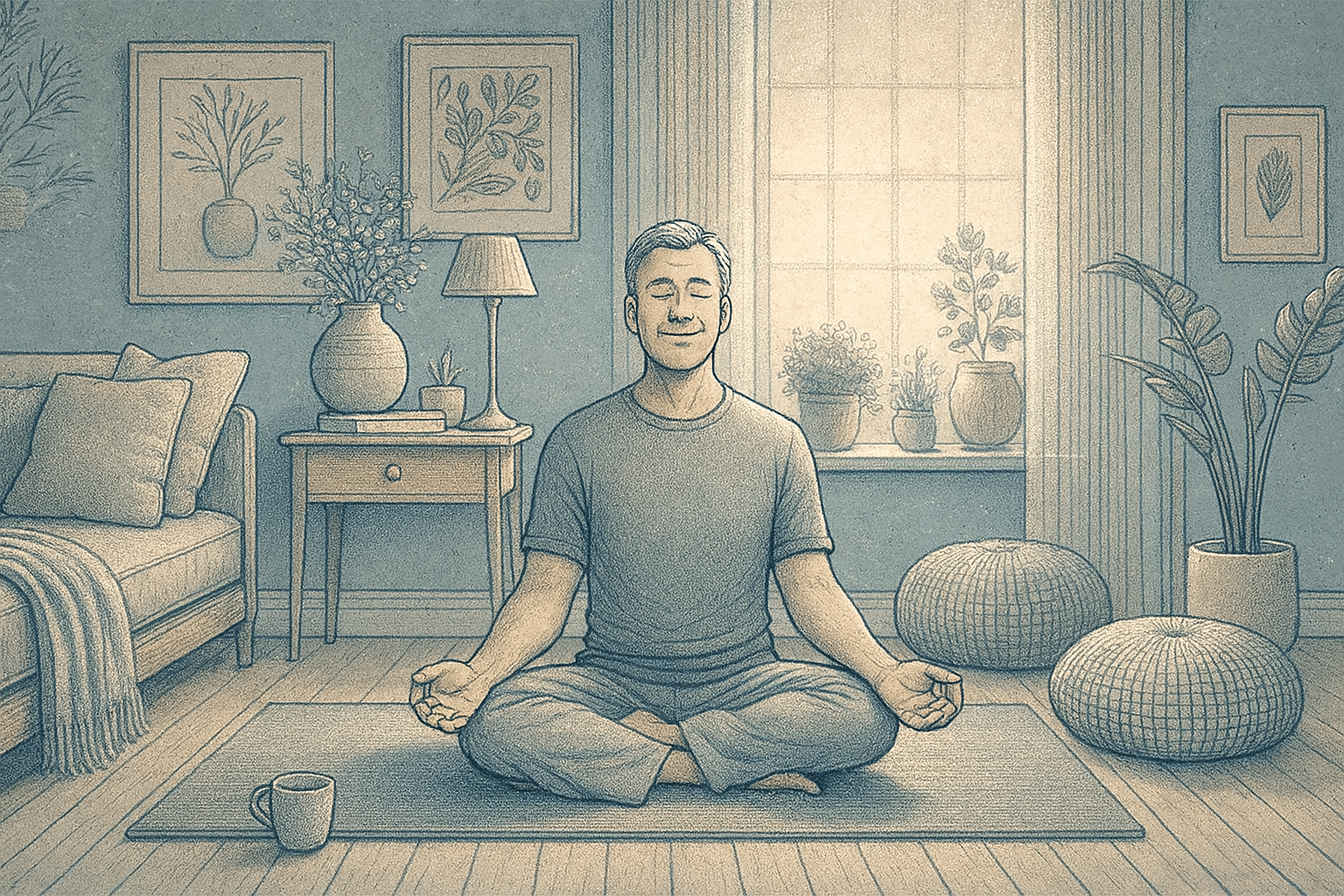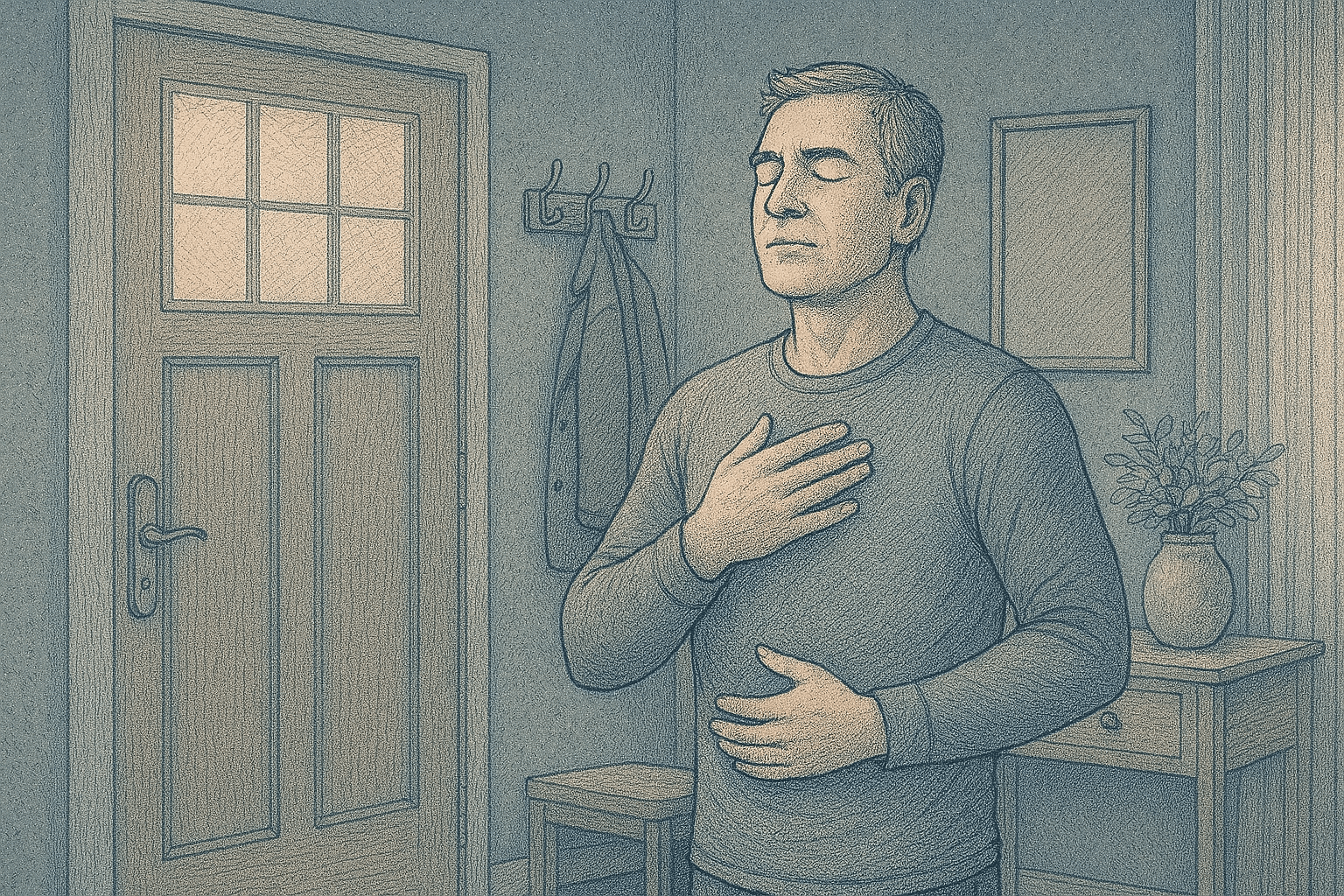
Key Takeaways
- Incorporating even small Zen practices like mindful breathing for 5 minutes daily can significantly reduce stress levels and improve mental clarity
- Decluttering your physical space is a tangible way to create mental clarity and reduce overwhelm in your daily life
- Practicing non-attachment to outcomes and embracing impermanence can free you from unnecessary suffering
- Regular meditation practice actually changes your brain structure, enhancing your ability to focus and regulate emotions
- Through personalized therapy, medication management, and flexible care formats including telehealth, Mission Connection integrates mindfulness, compassion, and mental health expertise to support adults facing anxiety, depression, trauma, and related challenges.
The Chaos We Live In: Why We Need Zen More Than Ever
Life today is overflowing with convenience yet tangled in complexity. We’re constantly connected but often feel isolated, surrounded by information yet starved for wisdom. This fuels stress, anxiety, and burnout. Zen provides relief, not by adding more, but by stripping away the noise, simplifying choices, and grounding us in the present. You don’t need a monastery or hours of meditation; even small, consistent practices can bring calm into the busiest days.
Mission Connection offers flexible outpatient care for adults needing more than weekly therapy. Our in-person and telehealth programs include individual, group, and experiential therapy, along with psychiatric care and medication management.
We treat anxiety, depression, trauma, and bipolar disorder using evidence-based approaches like CBT, DBT, mindfulness, and trauma-focused therapies. Designed to fit into daily life, our services provide consistent support without requiring residential care.
5 Powerful Zen Practices to Transform Your Daily Life
1. Say No to Worry: Breaking the Anxiety Cycle
Worry drains energy by keeping you in imagined futures instead of the present. Notice when it arises, then ask, “What’s needed right now?” to shift into constructive action. For persistent concerns, set aside a brief daily “worry time” and release them afterward. A simple Zen method is to label anxious thoughts as “thinking” or “worrying” and picture them drifting away, creating distance between you and the thought. With practice, worry loses its hold and the present becomes clearer.
2. Stop Self-Absorption: Shifting Focus Beyond Yourself
Constant self-focus fuels stress and disconnection. Instead, look outward by asking daily, “How can I be of service?” Small acts: listening fully, showing appreciation, helping in passing, create a sense of connection. Loving-kindness meditation, where you send goodwill to others, shifts your mind toward compassion and leaves you feeling lighter, more fulfilled, and less trapped in personal concerns.
3. Embrace Impermanence: Finding Peace in Change
Everything changes, yet resisting this truth causes suffering. Start by noticing simple changes around you; moving clouds, shifting breath, passing thoughts. During larger life changes, remind yourself, “This too shall pass,” not as blind optimism but as acceptance of reality. Non-attachment means engaging fully while holding experiences lightly. When resistance appears, pause, breathe, and ask, “What would acceptance look like now?” Over time, change becomes less threatening and more a part of living fully.
4. Sit Still: The Simple Power of Doing Nothing
In a world obsessed with busyness, sitting still is a quiet rebellion. Zazen, or seated meditation, is central to Zen practice because it breaks our habit of constant motion and distraction. This simple act of “just sitting” builds presence that naturally flows into everything else you do. Start with five minutes a day in a comfortable position, spine upright, focusing on the sensation of breathing. When your mind drifts, which it will, gently return to your breath without judgment. The goal isn’t to silence your thoughts, but to notice them without getting pulled along. Micro-moments of stillness work too; pause before answering the phone, take three deep breaths before walking through your front door, or linger in your car before the next task. These brief resets keep you grounded in the present.

5. Declutter: Clear Space, Clear Mind
Zen spaces are intentionally simple, reflecting the calm they aim to cultivate. Clutter demands attention, even when unnoticed, and clearing it frees both space and mental energy. Begin small; a single drawer, shelf, or digital folder, and ask, “Does this bring joy or serve a clear purpose?” Focus especially on your bedroom and meditation areas, as these directly affect rest and reflection. Mindful ownership doesn’t mean having nothing; it means being deliberate with what you keep. A 24-hour pause before buying non-essentials helps separate true needs from passing impulses. Simplicity isn’t loss; it’s release from the weight of excess.
How These Zen Practices Work in Real Life
Morning Zen: Starting Your Day Right
The first hour after waking shapes the rest of your day. Instead of reaching for your phone, start with three deep breaths in bed, stretch mindfully, and sit for a few minutes of meditation before engaging with the world. Even the busiest mornings can hold Zen moments; feel the brush on your teeth, savor the warmth of your coffee or tea, and give each small act your full attention. These pockets of presence gradually shift how you experience time.
Zen at Work: Finding Calm in Chaos
Workplaces may seem far from Zen, but their constant demands make them fertile ground for practice. Protect your attention by checking messages at set times and focusing on one task at a time. Keep a small object in view as a reminder to pause and breathe. Between projects, take thirty seconds to reset before moving on. In tense moments, use the “sacred pause” to respond with clarity rather than reflex. In Zen, the quality of your attention matters as much as the task itself.
Evening Reset: Creating Peace Before Sleep
Your evening sets the stage for deep rest. Create a clear transition from activity to stillness by setting a “digital sunset” at least an hour before bed. Close your day with gratitude or simple reflection to release lingering thoughts. Treat nightly routines as mindful rituals; feel the water on your skin, notice the texture of your sheets, and let a body scan melt away tension. These small acts prepare both body and mind to truly rest.
Finding Your Zen with Mission Connect: Compassionate Care That Meets You Where You Are

Finding balance in life can feel out of reach, especially when you’re juggling a busy schedule. That’s why Mission Connection’s outpatient programs are built to adapt to your world. In-person, virtual, or a mix of both; you choose what fits. We’re here to give mental health support that feels like a natural part of your day, not an added stress.
Our team brings compassion, simplicity, and mindfulness into every session. We use proven approaches like CBT, DBT, mindfulness practices, and even cinema therapy to help with challenges like anxiety, trauma, depression, bipolar disorder, or dual diagnoses. The care is flexible, but the focus is always on you.
Support goes deeper than sessions. We create person-centered treatment plans that blend therapy with medication management, helping you build life skills and confidence over time. Sessions can happen in-person at our warm, welcoming spaces in California, Virginia, or Washington, or through our secure telehealth platform for more privacy and convenience.
We work with many insurance plans to keep care within reach and guide you through each step, starting with your first assessment. When you join Mission Connect, you’re building a partnership centered on well-being and lasting healing.
Call Today 866-833-1822.
Frequently Asked Questions (FAQ)
Do I need special equipment or space to practice Zen meditation?
No. A chair, the edge of your bed, or a quiet corner will do. While a small dedicated space with a cushion or simple object can help, it’s a support, not a requirement.
Can children learn and benefit from Zen practices?
Yes. Children already possess present-moment awareness. Mindful movement, sensory games, and simple breathing exercises work best. These playful methods build emotional regulation and focus while laying a foundation for later practice.
What if my mind won’t stop racing during meditation?
That’s normal. The goal isn’t to stop thoughts but to notice them and return to your breath. Each return is the practice, strengthening attention like a muscle. Thought activity may settle over time, but consistency matters more than quietness.
How is Zen different from other mindfulness practices?
Zen emphasizes simplicity, direct experience, and integrating mindfulness into everyday activities like walking or cleaning. It’s less about specific goals and more about being fully present in each moment, making it well-suited for modern life.
What kinds of therapies are offered to support mental health at Mission Connection Healthcare?
Mission Connection provides evidence-based therapies including Cognitive Behavioral Therapy, Dialectical Behavior Therapy, Cinema Therapy, Psycho-educational groups, and more, personalized to your needs through individual and group formats.


